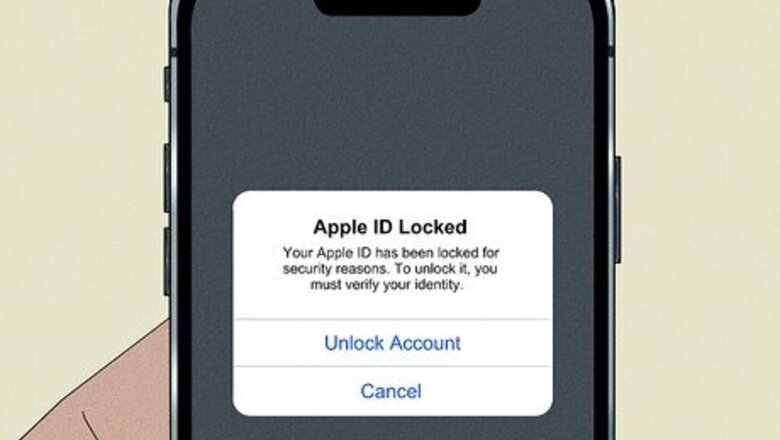
views
X
Research source
, so learning the signs of a potentially compromised device is important. In this article, we'll go over some signs that your phone might be hacked and steps to push the hacker out of your device.
Ways to Tell if Someone is Remotely Accessing Your iPhone
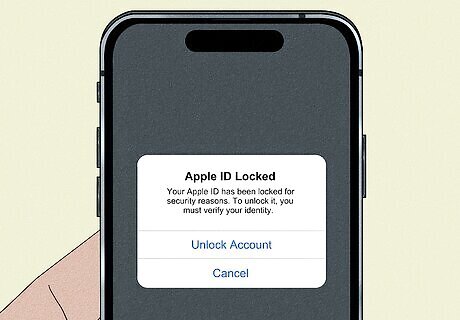
You're locked out of your Apple ID. If you are locked out of your Apple ID because the password got changed and/or you got a notification from Apple that there was suspicious activity on your Apple ID, this is usually a good indicator that your phone is compromised. However, if you share a device with someone else, you may want to make sure they didn't change your Apple ID password for some reason.
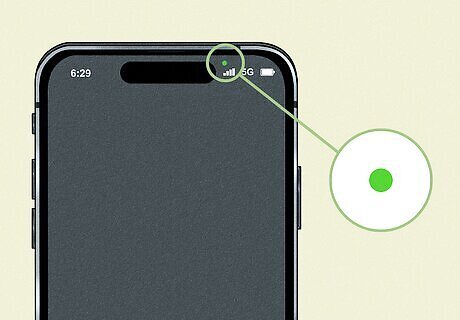
The camera or microphone on your phone turn on by themselves. On the top of your phone screen, a colored dot will appear if the camera or microphone is in use. A green dot means an app is using the camera, and an orange dot means an app is using the microphone. If you're not using an app that has camera/microphone abilities (or you're not using your device at all when the indicators light up), this is usually a good indicator that someone is remotely accessing your device.
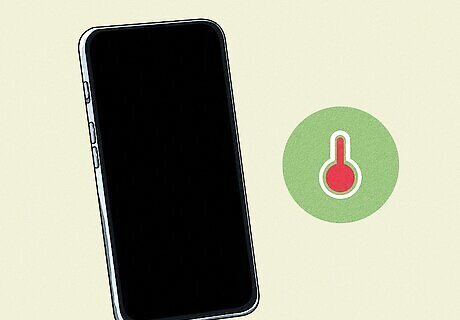
Your phone feels hotter than usual. While it's normal for your iPhone to feel hot after you've been using it for a while, it shouldn't be hot when it's not in use and shouldn't be so hot that it's actually painful. A phone that is noticeably hotter than usual can be a sign of a compromised device. Before worrying that your phone is hacked, consider the age of your device, what phone case you have on it, and what you use your phone for. If your phone is very old, it may run slightly hotter than it did when it was new. Phone cases can also cause your device to get hotter if made with thick material or if one of the air vents at the bottom of the device is blocked. If you use your phone for intensive activities (like gaming or streaming), it may feel hotter than if you just use it to send messages or browse the web.
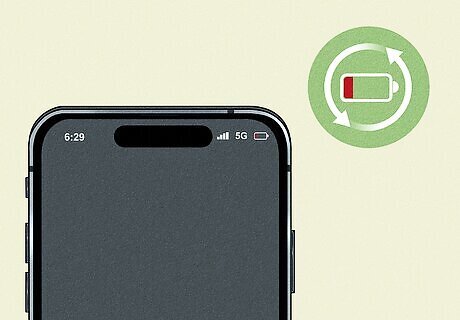
Your phone's battery runs out much quicker than it used to. If you notice that your phone is dying very quickly, this may be a sign that someone is accessing your device remotely. When you use your phone, the battery will go down, but there shouldn't be a noticeable jump in battery drain from day to day. Consider the age of your phone and what you use it for before worrying that you're hacked. An old phone will drain the battery faster than a new one, but it shouldn't be a noticeable switch. If you use your phone for intensive activities (like gaming or streaming), your battery might die faster than if you just use it to send messages or browse the web.
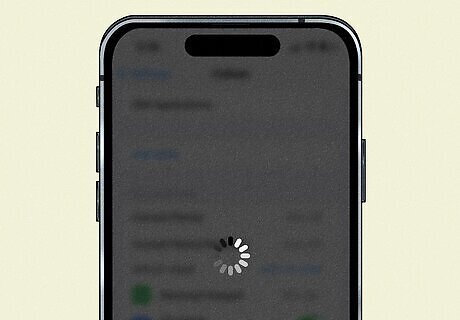
Your phone's performance has gotten worse. If you notice that your phone is crashing a lot more than usual or has gotten very slow, this might indicate that it is compromised. Crashes happen occasionally, but they are not normal, especially crashes that shut down your entire phone. Before you worry that your device is hacked, think about the age of your phone. Phones slow down as they age, and a crash every once in a while isn't a big indicator that you're hacked. However, if the crashes or performance issues are noticeable and sudden, this may indicate that your phone is hacked.
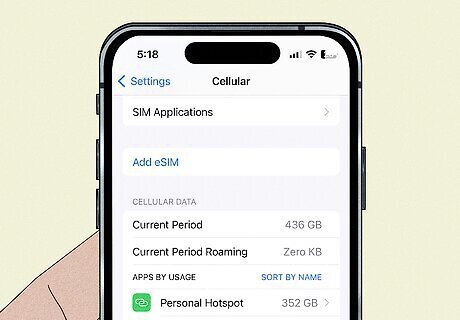
Your phone is using more data than it usually does. Go to Settings > Cellular to check your data usage for your billing period. If this number is much higher than normal, or you've noticed a huge spike in your cell phone bill, hackers could be using your iPhone's data without your knowledge. If you share a phone plan with other people or someone else uses your device (i.e., a child playing games on your phone), check in with them to make sure they weren't the reason for the data spikes.
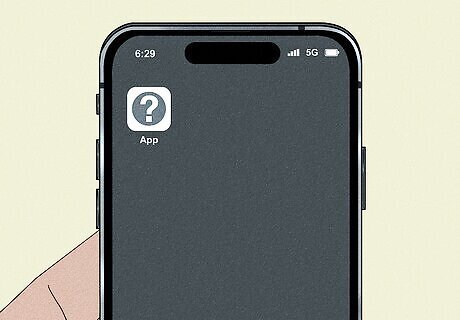
There are apps on your phone that you didn't install. If you notice any strange apps you didn't install on your device, this could indicate that someone is remotely accessing your device. However, if more than one person uses your phone (such as a child, spouse/significant other, or friend), they could have been the one installing the app. Check with the other people who use your phone before concluding you're hacked. If you have more than one Apple device, you may see apps installed on those devices on your phone. This is especially true for Apple TVs or iPads that are signed in to your iCloud account. If you notice a new app on your iPhone that you didn't install, check to see if someone added it to your Apple TV or iPad first.
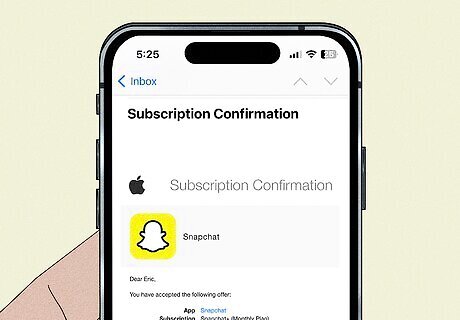
There are unauthorized purchases made on your Apple ID. If you get notified that your Apple ID made a purchase you didn't authorize, this may indicate that you're hacked. If your Apple ID is connected to an iPad or Apple TV, make sure the purchases didn't happen on either of those devices. Also, if your iPhone is used by more than one person (i.e., a child, spouse/significant other, friend, etc.), one of them could have made the purchase.
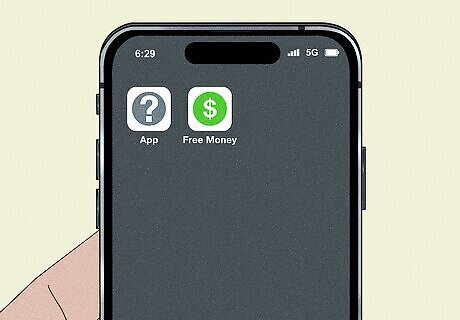
There is proof of phone activity when your device is locked. If you unlock your phone to see new activity (newly installed apps, rearranged Home Screen, Home Screen wallpaper change, etc.), this could be an indicator that your device is being accessed remotely. If you have more than one Apple device, you may see apps installed on those devices on your phone. This is especially true for Apple TVs or iPads that are signed in to your iCloud account. If you notice that an app was installed on your iPhone while it was locked, make sure it wasn't installed on your Apple TV or iPad then.
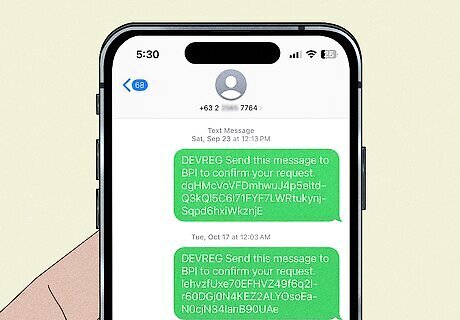
Messages that you didn't send are being sent from your phone. If there are messages sent from your phone that you didn't send, this may indicate that your phone is compromised. If you share your phone with someone else, they may have been the one to send that message. Check with them before worrying that your phone is being accessed remotely. If you're logged into a MacBook or iPad with your Apple ID, messages you send on these devices might also appear on your iPhone.
What to Do If Your iPhone is Being Remotely Accessed

Remain calm. Finding out that someone is accessing your device can feel scary and even violating. Staying calm during this process will help you quickly and effectively resolve the issue.
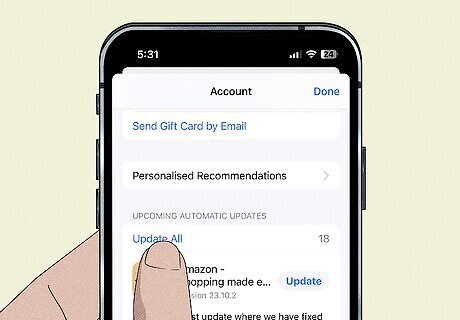
Update your phone and apps. Phone updates can be tedious, but keeping your phone and apps up-to-date also ensures the newest safety measures are installed on your device. Updating your phone and apps can fix security breaches that hackers use to get into your device.
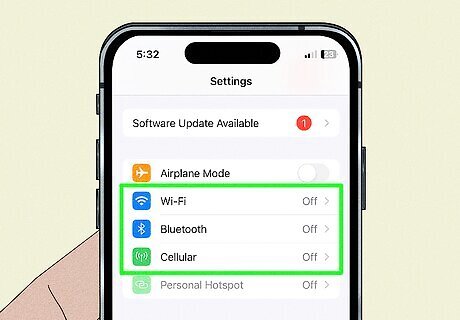
Disconnect from the internet, Bluetooth, and cellular service. Before continuing, turn off your phone's Wi-Fi and Bluetooth adapters and disable cellular service. This will immediately push out the hacker so they can't continue accessing your device. To disconnect from Wi-Fi, go to Settings > Wi-Fi and toggle off Wi-Fi (the toggle should be gray). To disconnect from Bluetooth, go to Settings > Bluetooth and toggle off Bluetooth (the toggle should be gray). To disconnect from cellular service, go to Settings > Cellular and toggle off Cellular Data (the toggle should be gray). This is not a long-term solution. However, when you're trying to figure out the hacker's entry point, disconnecting your device is an important step so the hacker can't get ahead of you and undo any of the steps you're taking to secure your device.
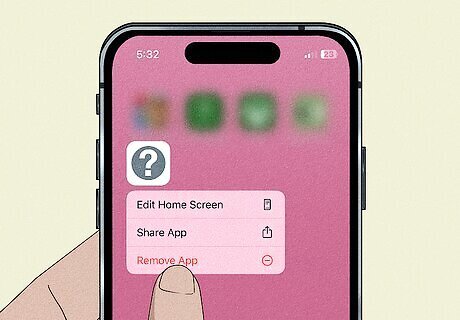
Delete unrecognized apps. If you notice a suspicious app you don't remember installing, delete it. You can delete these apps directly from the Home Screen or navigate to Settings >Apps to view all the apps installed on your phone.
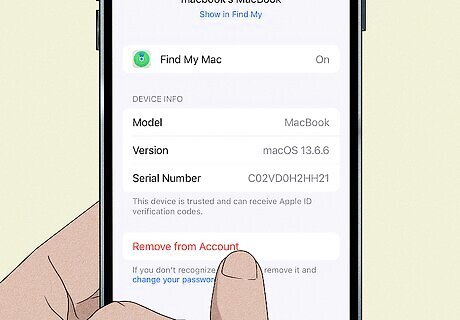
Remove unrecognized devices. If there are unrecognized devices that have access to your Apple ID, you should remove them. You should also remove old devices you no longer have to reduce the chance that someone accidentally logs into your Apple ID. Sign in at appleid.apple.com and select Devices on the left-hand side. Select any unrecognized device and click Remove from account. The site will ask you for confirmation, so click through until the device has been removed.
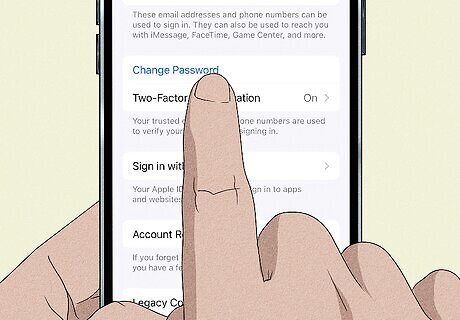
Change your passwords. You should change your Apple ID password if you suspect someone is remotely accessing your phone, but changing all your passwords is ideal. Consider using a password manager to help create complex passwords you don't have to try and remember.
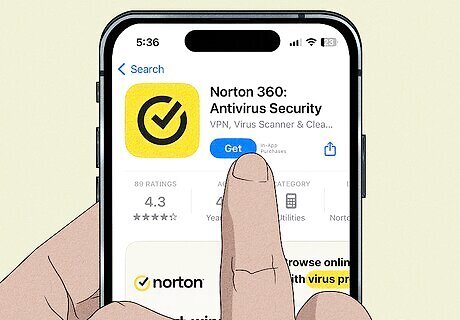
Run an antivirus scan. Just like your computer, you can run antivirus on your iPhone. If there is malicious software on your phone, an antivirus scan can help identify, quarantine, and remove it. If you already have an antivirus on your computer, check for an associated mobile app for the company you use. Some antivirus providers have bundles for their computer clients and mobile apps. If you don't already have an antivirus app, you'll need to temporarily reconnect to the internet or cellular data to download it.

Report the fraud to Apple. If your Apple ID or iCloud has been compromised, you should contact Apple Support to report the fraud. Note that Apple won't contact you for any reason unless you contact them first, so if Apple contacts you directly, this is a scam you should avoid. You can notify Apple via the following methods: Email: [email protected] Phone: 800-275-2273 In person: Visit any Apple Store and ask to speak to a customer support representative
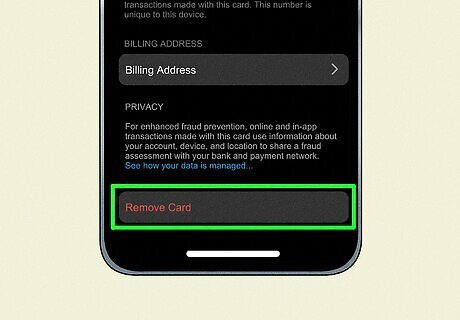
Cancel any cards linked to your device. If you had a credit or debit card linked to your Apple Pay, you may want to have those cards canceled and reissued. You can call your bank or credit provider and explain the situation before asking if those cards can be reissued with new numbers.

Freeze your credit. If you suspect your personal information has been stolen, you can place a credit freeze with the three major credit bureaus. This keeps a hacker from using your personal information to apply for loans or open new accounts. To freeze your credit, you need to contact each bureau individually: Equifax: 1-800-349-9960 or online Experian: 1-888-397-3742 or online TransUnion: 1-888-909-8872 or online
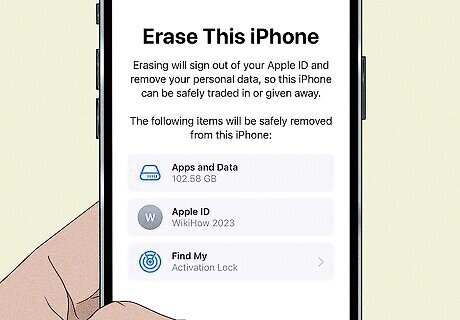
Factory reset your iPhone. Factory resetting your phone is a last resort, but if you've tried the other methods listed above and your phone is still showing signs of being compromised, this is a surefire way to get a hacker out of your phone.




















Comments
0 comment